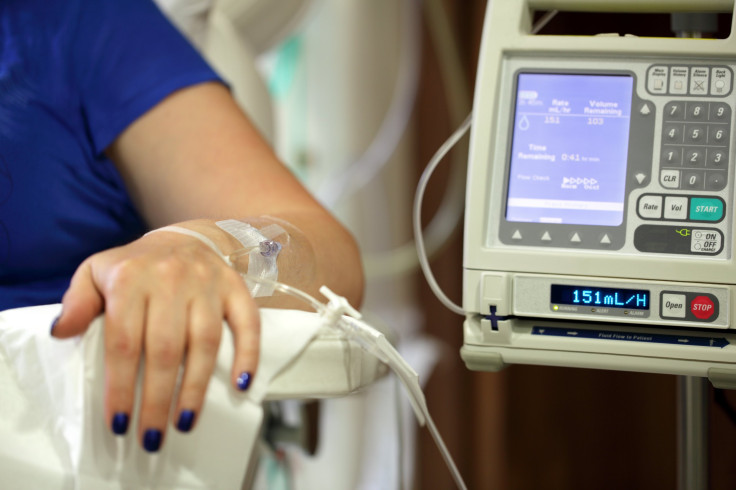Breathing In Extra Oxygen Shows Promise In Fighting Cancer And Boosting Immune System: But Will It Work In Humans?

The idea seems simple, almost too simple — breathing in extra oxygen may boost immune cells in battling cancer. That’s what Michail Sitkovsky, an immunophysiology researcher at Northeastern University, and his team have posited in a new study: that supplemental oxygen treatment could awaken “sleepy” cells in the body that are capable of fighting tumors.
The study makes bold claims, noting that it may make a dramatic improvement in cancer treatment — despite the fact that it was only completed in a mouse model. The researchers found that breathing in 40-60 percent oxygen compared to the 21 percent air provides could help weaken immunosuppression and fight the development in tumors by releasing T-lymphocytes.
“Breathing supplemental oxygen opens up the gates of the tumor fortress and wakes up ‘sleepy anti-tumor cells, enabling these soldiers to enter the fortress and destroy it,” Sitkovsky said. “However, if anti-tumor immune cells are not present, oxygen will have no impact.”
Sitkovsky has been analyzing the effects of extra oxygen on cancer-fighting cells for decades now. Years ago, he discovered that a receptor located on the surface of immune cells, the A2A adenosine receptor, works against the body by actually helping cancer grow. The receptor prevents T-cells from attacking tumors and disabling the “killer cells” that typically enter tumors to destroy them. But when supplemental oxygen entered the body, it weakened the A2A adenosine receptor and instead triggered the T-cells that kill tumors, the researchers found.
Interestingly, coffee also comes into the equation. Sitkovsky found that caffeine naturally inhibits the A2A adenosine receptor. “The anti-tumor effects of supplemental oxygen can be further improved by the natural antagonist of the A2A adenosine receptor, which happens to be the caffeine in your coffee,” he said.
“I was looking to solve the problem of existence of tumors and anti-tumor killer cells in the same patient,” Sitkovsky told NBC News. “Since the root of all problems is the lack of oxygen in tumors, a simple solution is to give tumors more oxygen.”
But is the theory too simple? Scientists have been working on incorporating oxygen supplementation into cancer treatment for years now, and have attempted it in many different ways. But it hasn’t worked yet. Some even claim that providing extra oxygen to a patient can be dangerous.
In addition, Sitkovsky’s study was only done in mice, not humans: repeating the trial in humans is an different matter entirely. But if it’s possible to reap the benefits of oxygen in a non-toxic way, it could be a game-changer: “This is exciting work,” Susanna Greer, director of clinical research and immunology for the American Cancer Society, who was not involved in the study, told NBC News. “This is the kind of data that definitely makes you catch your breath a little bit.”
Source: Hatfield S, Kjaergaard J, Lukashev D, Schreiber T, Belikoff B, Abbot R. “Immunological mechanisms of the antitumor effects of supplemental oxygenation.” Science Translational Medicine, 2015.



























